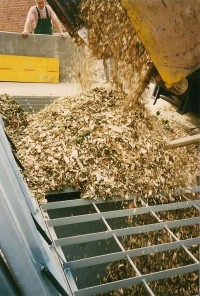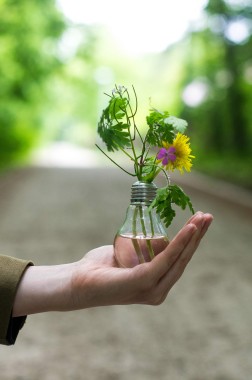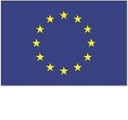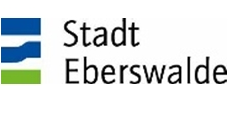Electricity and heat supply
Green power
The electricity from our sockets is certified green electricity - since 2007 at the City Campus, since 2009 at the Forest Botanical Garden and since 2013 at the Forest Campus.
HNEE also generates electricity with three small photovoltaic systems - on the roof of FBG, on the gable wall of House 11 and on the roof of house 1.
In order to reduce electricity consumption, various energy efficiency measures are continuously implemented, including light sources controlled with motion detectors, procurement of energy-saving computing technology, purchase of energy-efficient refrigerators, and replacement of lighting technology.
In 2017, there was also an increased switch to LED lighting. The refectory at the forest campus, the outdoor lighting at the city campus, as well as the technical center and the wood workshop have already been completely converted to LED. An overview of how much electricity can be saved as a result can be found here.
Heat from renewable resources

We generate the thermal energy at the university itself. We operate wood pellet heating systems at the city campus and at the Forest Botanical Garden. The pellets are delivered from Schwedt and Fehrbellin. At the Forest Campus, we use a wood chip heating system to generate thermal energy. This wood chip heating system also supplies the State Competence Center for Forestry and the Thünen Institute for Forest Ecology located at the Waldcampus as well as our tenants MPA and the canteen of the Student Union Frankfurt/Oder. The wood chips are delivered by a northern German company.
At the city campus, the pellet heating system was expanded. Since the beginning of the 2015/2016 heating period, all buildings here can be stably supplied with heat from renewable energy. As of the 2015/16 heating period, all HNEE buildings will therefore be heated exclusively with biomass, except for House 25 and partially House 10. These buildings are currently still heated via a gas boiler; a connection to the woodchip heating system is planned for 2021.
The hot water supply at the Waldcampus is provided by a gas boiler in summer. The possibility of a decentralized heat supply at the Waldcampus will be investigated in the energy concept planned for 2021.











